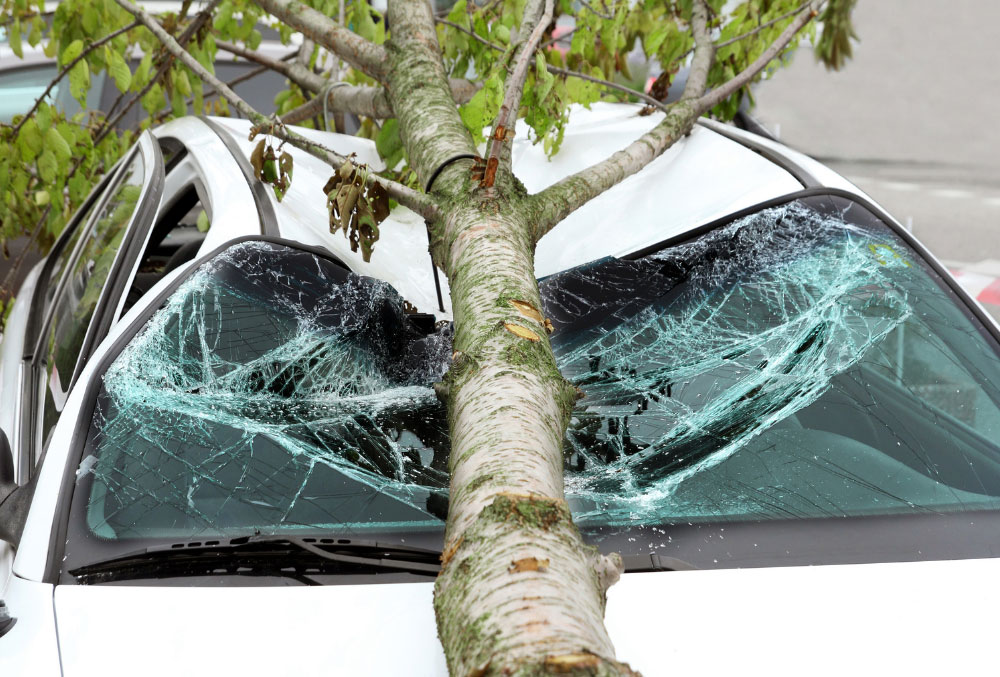What is an Insurance Deductible?
February, 8 2022
If you have ever had to purchase an auto or home insurance policy, you may have been confronted with some confusing insurance terms. One of the most commonly used terms in insurance policies is the deductible. And while you may have a general idea of what it is, you may not be aware of when it comes into play or what deductible you should choose.
Luckily, we have you covered! Keep reading for everything you need to know about an insurance deductible.
What is a Deductible?
What is an insurance deductible exactly? Simply stated, a deductible is the insured’s out-of-pocket cost related to a claim. If an insurance customer needs to file a claim to have the damage repaired to their home or car, the deductible is the amount that is paid before the insurance company issues a payment.
How Do Deductibles Work?
When you purchase an auto or home policy, you will usually be asked to select a deductible for certain coverages. The higher the deductible you choose, the lower the price of your policy will be. But you must remember that this deductible amount is what you will need to pay in the event of a claim, so it is essential to choose an amount that makes the most financial sense for your situation.
When you file a claim, the adjuster at your insurance company will notify you of your deductible and the amount. Your deductible amount will then be subtracted or deducted from the total amount your insurance company would pay for the damage.
For example, assume you carry a collision deductible of $1,000 on your car, and you skid on ice, ultimately hitting a pole. If the damage to your car amounts to $5,000, your insurance company will pay you $4,000 to repair the damage ($5,000 in total damage, minus the $1,000 deductible).
One of the most common misconceptions about deductibles is that they are applicable for every type of claim. However, this is not accurate. Deductibles only apply to certain coverages, and the amount of the deductible can vary, depending on the coverage.
To better explain this concept, we must first look at the deductibles specific to both the auto and home insurance policy.
Auto Insurance Deductibles
An auto insurance policy generally has two major components: liability and physical damage. The liability portion of the insurance policy pays for damage that you, the insured, cause and for which you are legally responsible. Liability coverages can vary depending on where you live, but almost all contain both bodily injury liability and property damage liability.
Both bodily injury and property damage do not carry a deductible. This means that if you are filing a claim for damage to the person, object, or vehicle that you hit, you have no out-of-pocket cost.
It is also mandatory in Ontario to carry uninsured automobile coverage. This coverage protects you if you are hit by someone who does not have insurance. While this coverage is typically lumped together with the liability coverages, it actually covers damage to your car. As such, there is a deductible that would apply. This deductible is typically not chosen at the purchase of a policy and is a standard amount, usually $300.
The physical damage portion of a car insurance policy contains two coverages: comprehensive and collision, both subject to a deductible. Unlike the uninsured automobile coverage, the comprehensive and collision deductibles are chosen by you at policy purchase.
The options offered for these deductibles can vary by the insurance company but generally can range between $250 to $2,500.
Home Insurance Deductibles
The deductible on a home insurance policy works very similarly to those found on the auto insurance policy. A home insurance policy has a liability section that does not carry a deductible like auto insurance. However, the other coverages do.
The customer chooses the deductible at the time of purchase, and the deductible tends to be offered at higher amounts than what is seen on an auto policy. A standard homeowner’s deductible is usually $1,000 or $2,500, although it is not uncommon to see some companies offer up to $5,000.
Also, similar to the auto insurance policy, some special deductibles can be applied to specific events. Some companies offer a hurricane or wind deductible, typically for homes in high-risk areas. Homes in these areas choose a separate deductible amount for any wind or hurricane damage, often higher than the standard deductible; 2% or 5% of the home’s insured value, for example.
Why Do Deductibles Exist?
You may be wondering what purpose insurance deductibles serve, and the reason may be surprising to some. Carrying a deductible is a way for insurance companies to keep their costs lower, which allows them to charge less for their policies. This works in a few significant ways.
Firstly, deductibles can prevent customers from filing claims for minor damage. If you have a $1,000 deductible, for example, you will not file any claims for less than that amount. This self-retention means that the insurance company has more money available when a more extensive loss occurs. And with fewer claim payouts, the more profitable the company is, which results in lower prices for everyone.
More importantly, deductibles have been known to prevent fraudulent claims and the reckless behavior that leads to losses. The urge to commit a fraudulent act is obviously reduced when consumers are forced to utilize their own finances first. With fewer fraudulent losses, insurers can lower their expenses over time, which ultimately translates to better prices for consumers.
How Can I Learn More?
If you need help navigating confusing insurance terms like deductible, contact the experts at Duliban Insurance. Their licensed professionals can walk you through the policy and what deductibles you should carry based on your situation.











